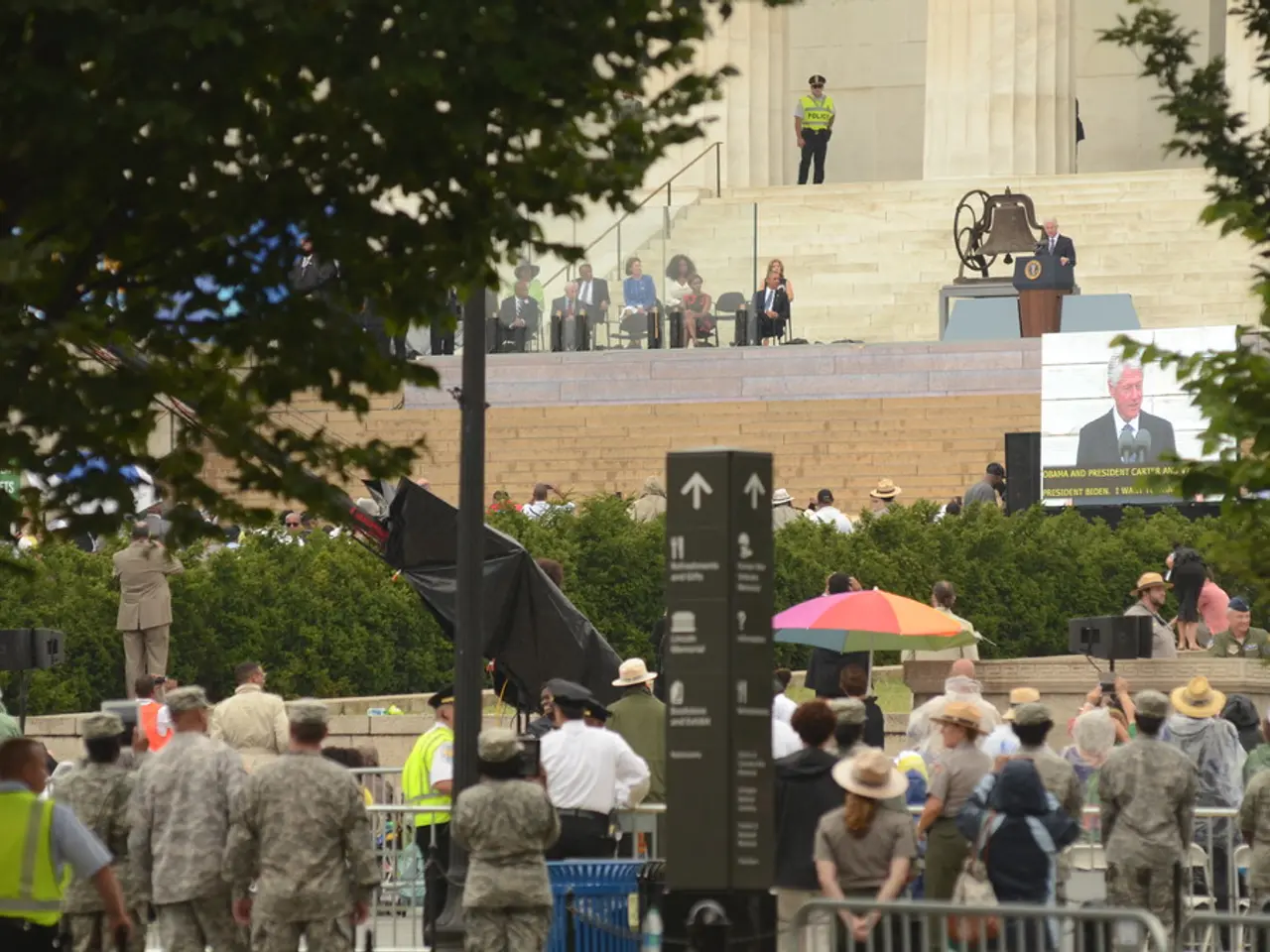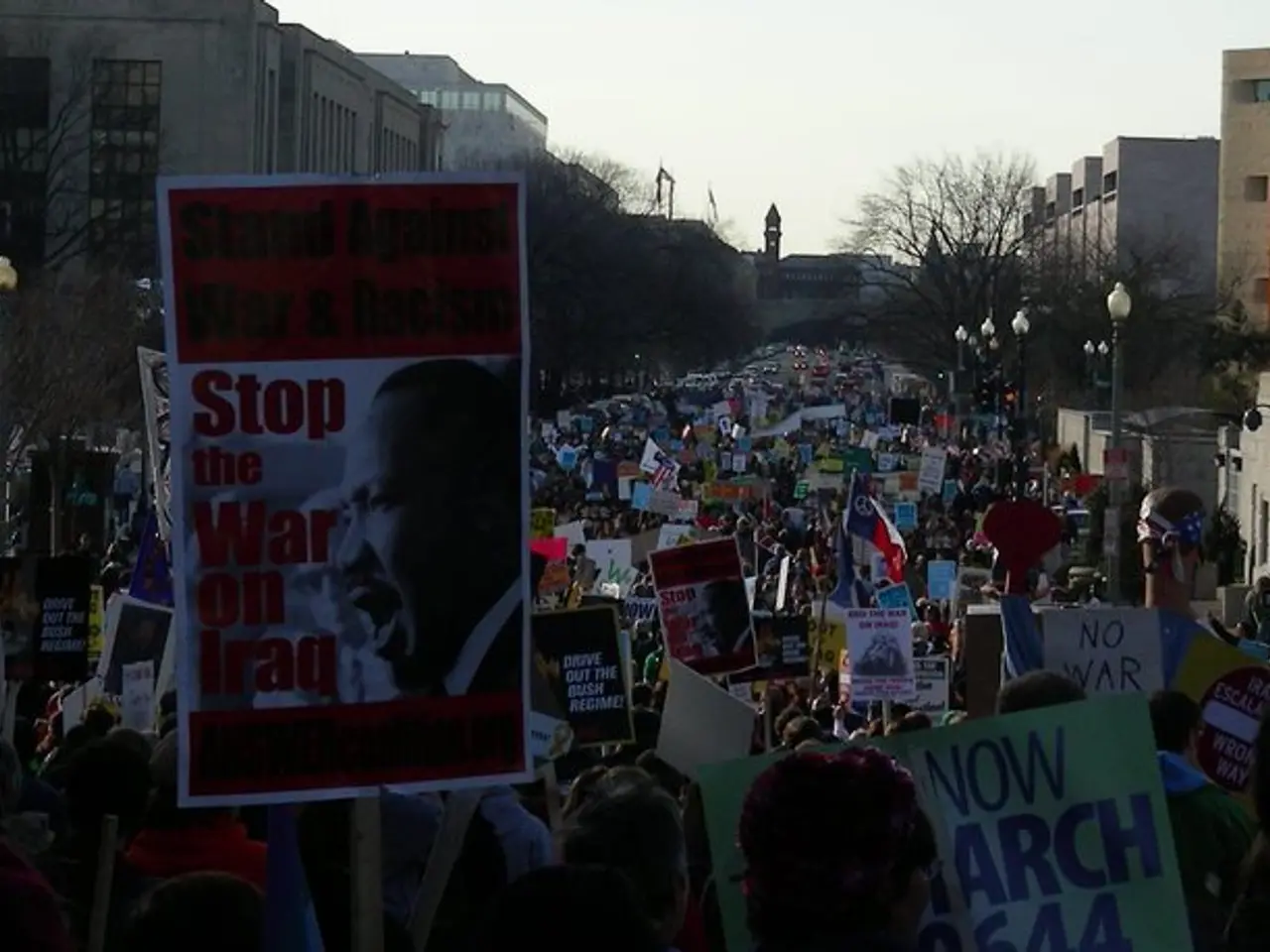Tensions in the Middle East: Iranian Foreign Minister Araghtchi Addresses UN Human Rights Council
UN Human Rights Council Hears from Iranian Foreign Minister Regarding Human Rights Issues
Stay Updated, Share Now Join the Discussion Chat It Up Mail Me This Print This Out Copy Link
Iranian Foreign Minister Abbas Araghtchi is set to address the United Nations Human Rights Council on Friday, prior to his scheduled meeting with European foreign ministers in Geneva. His speech, which begins at 3:00 PM, has attracted attention, especially given the ongoing tension between Iran and other world powers over its nuclear program.
According to UN spokesman Pascal Sim, Israeli Ambassador to the UN in Geneva, Daniel Meron, will hold a press conference at 2:30 PM, discussing Iran's actions. Israel has been critical of the UN Human Rights Council, accusing it of antisemitism and boycotting its sessions.
This upcoming meeting in Geneva will focus on negotiating a solution to the Iranian nuclear program. German Foreign Minister Johann Wadephul (CDU) is expected to attend, along with his counterparts from France and the UK, as well as EU foreign policy chief Kaja Kallas.
Recent developments have seen Israel launch major attacks on Iran, with the most recent attack occurring on June 13. Israel claims the attacks were necessary to prevent Iran from developing a nuclear bomb. Iran retaliated by bombing Israeli targets with rockets and drones.
Historically, Western countries have accused Iran of seeking nuclear weapons, an allegation Iran denies. Since the U.S. withdrawal from the 2015 nuclear deal in 2018, Iran has increased its uranium enrichment.
In an unprecedented move last year, the United States launched targeted airstrikes on three key Iranian nuclear enrichment facilities. The strikes, announced by former President Donald Trump, were aimed at diminishing Iran’s nuclear capabilities by obliterating these sites. The operation, which was described as precise, targeted the nuclear program infrastructure without disrupting conventional oil and gas facilities, thus maintaining energy security and global market stability[1][2].
These airstrikes signaled a strong message to Iran, Russia, and China, demonstrating America's readiness to use force to defend its interests. Should Iran retaliate against U.S. personnel or assets, further, more severe responses might be initiated, potentially involving attacks on Iranian government and economic targets[1].
Although Israel's response to the U.S. military action is currently unreported, Israel has always been closely monitoring and often supporting measures to curb Iran's nuclear program, due to its own security concerns.
The United Nations Human Rights Council (UNHRC) has not yet taken a direct role in the immediate aftermath of these military strikes but may engage in discussions on related humanitarian or legal issues in the future[1][2].
Sources: ntv.de, AFP, * plus additional insight from enrichment data for context on U.S. military strikes and Israeli responses.
In light of the ongoing tensions between Iran and other world powers over Iran's nuclear program, the upcoming meeting in Geneva between European foreign ministers and Iranian Foreign Minister Abbas Araghtchi might discuss the free movement of workers, a key aspect of EC countries, as part of broader politics and general news. Meanwhile, the United Nations Human Rights Council could potentially delve into humanitarian or legal issues concerning war-and-conflicts, a topic recently amplified by Israel's attacks on Iranian targets and Iran's subsequent retaliation.




